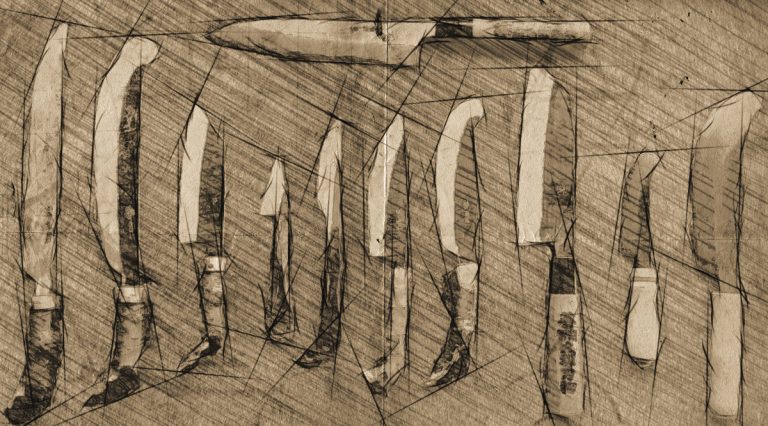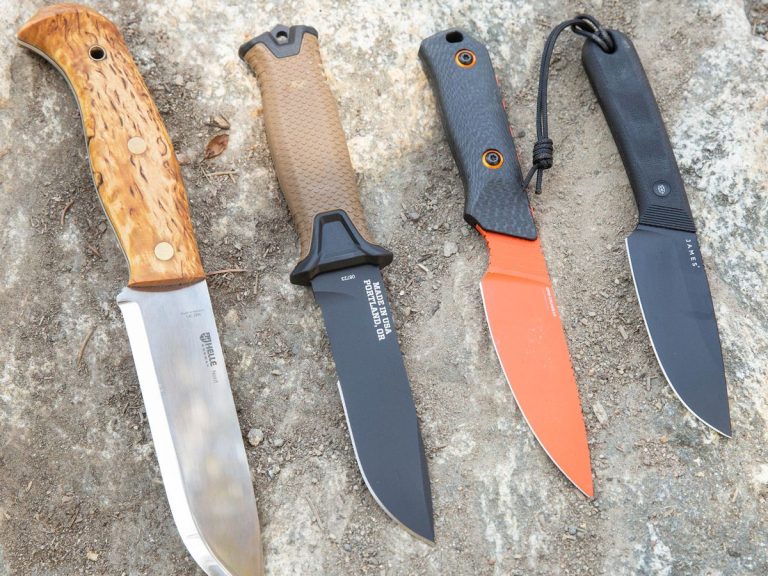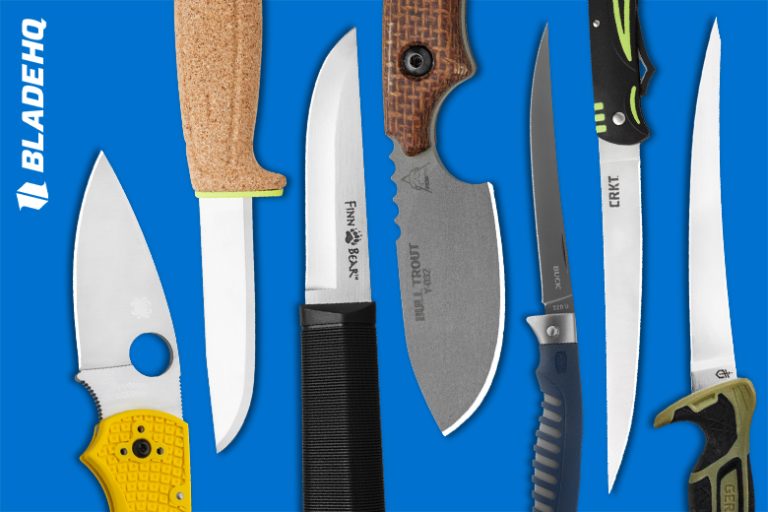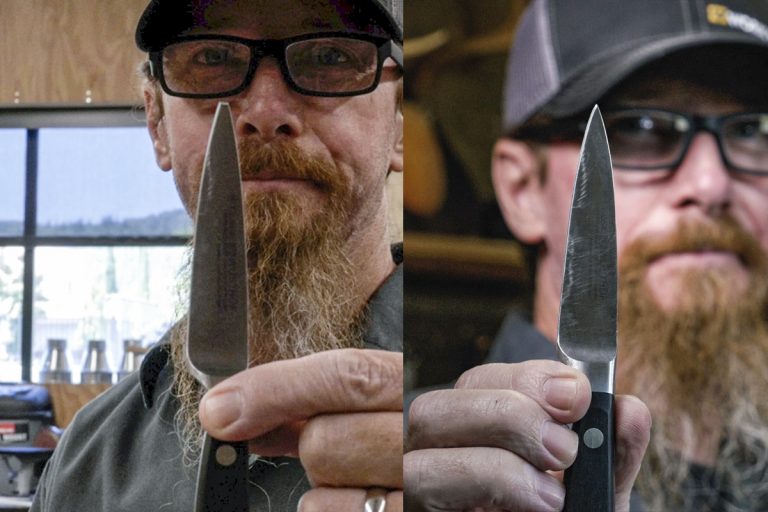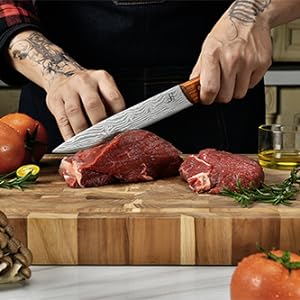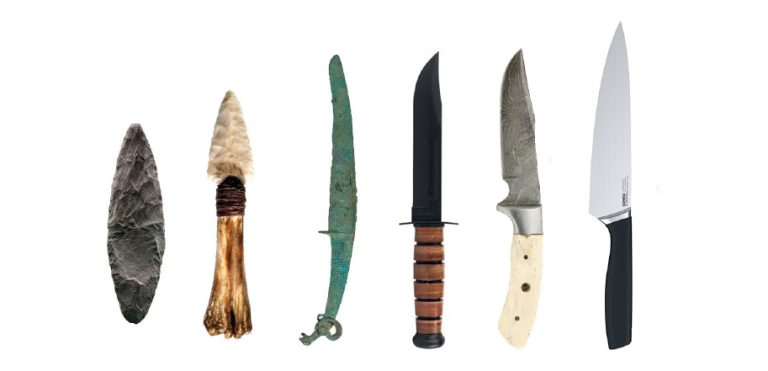Butcher Knife Basics: From Meat Prep to Bbq
From meat prep to BBQ, mastering the basics of using a butcher knife is essential. We will delve into the foundations of using a butcher knife effectively and safely for various meat preparations.
Understanding the different knife cuts and techniques, proper handling and care, and tips for using a butcher knife on the grill will equip you with the necessary skills to elevate your cooking game. Whether you are a seasoned chef or a home cook, knowing the basics of using a butcher knife will enhance your culinary experience and ensure deliciously prepared meats every time.
Read on to become a pro in the art of wielding a butcher knife.
Choosing The Right Butcher Knife
Choosing the right butcher knife is essential for efficient meat preparation and BBQ. Several factors come into play when selecting a butcher knife:
| Type of Butcher Knife | Uses |
|---|---|
| Boning Knife | Removal of bones from meat, poultry, and fish. |
| Cleaver | Chopping large meat and bones. |
| Breaking Knife | Slicing larger cuts of meat or separating primal cuts. |
| Meat Cleaver | For heavy-duty tasks like splitting bones. |
Consider the following while choosing your butcher knife:
- Blade Material: Opt for high-quality stainless steel blades for durability and corrosion resistance.
- Blade Length: Choose a length suitable for your specific needs, ensuring it offers control and precision.
- Weight and Balance: Consider the weight and balance of the knife for comfortable handling and reduced fatigue.
- Handle Comfort: Look for ergonomic handles that provide a secure grip for extended periods.
- Edge Type: Decide between straight and serrated edges based on the tasks you frequently perform.
By carefully considering these factors, you can select the right butcher knife to enhance your meat preparation and BBQ experience.
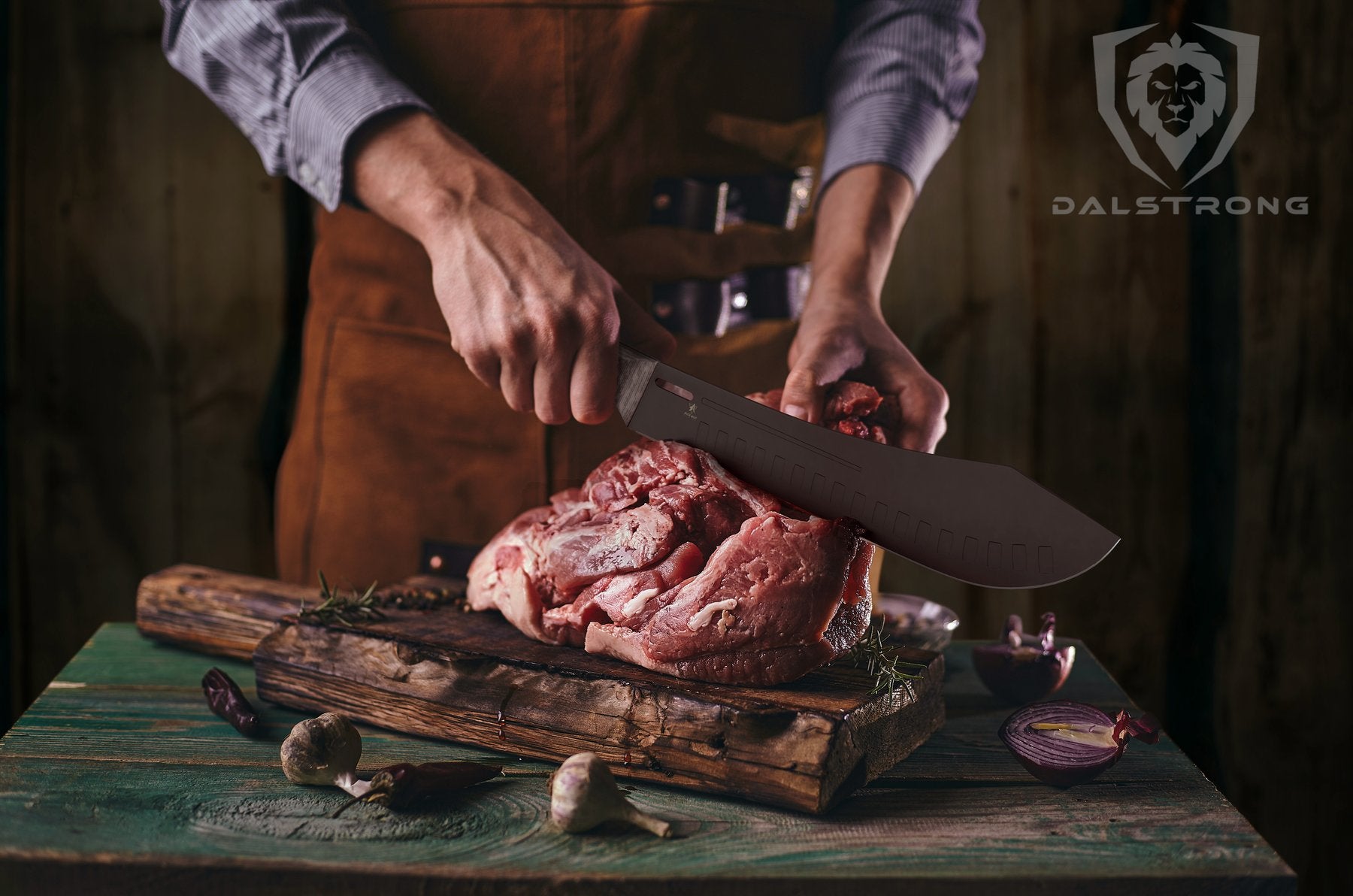
Credit: dalstrong.com
Essential Butcher Knife Skills
Proper grip and handling techniques are essential for mastering butcher knife skills. The way you hold the knife can significantly impact the quality and precision of your cuts. Ensure a firm grip on the handle, with your fingers wrapping around the handle and your thumb resting on the spine. This grip provides control and stability, allowing you to maneuver the knife with ease.
When it comes to meat preparation, mastering basic knife cuts is crucial. Familiarize yourself with techniques such as slicing, dicing, and chopping. Slicing involves cutting through the meat with a smooth, controlled motion, while dicing requires precise cuts into small, uniform pieces. Chopping, on the other hand, involves using a downward motion to cut through larger pieces of meat.
By incorporating these essential knife skills into your butcher knife basics, you’ll be well-equipped to handle any meat preparation task with confidence.
Meat Preparation Techniques
Meat Preparation Techniques: One of the essential skills in butcher knife basics is the art of preparing meat. Trimming excess fat and removing skin is a crucial step before cooking. By trimming excess fat, you enhance the flavor and prevent it from becoming greasy. Removing the skin helps to reduce the chewiness and allows for better seasoning absorption. Another technique is breaking down large cuts of meat into smaller portions, which makes it easier to handle during the cooking process. Furthermore, understanding different cuts and their uses in BBQ is essential for achieving the desired texture and taste. Knowing which cut to use for grilling, smoking, or roasting can elevate your barbecue game to a whole new level. By mastering these meat preparation techniques, you can ensure delicious and tender meat for your BBQ gatherings.
Maintaining And Sharpening Butcher Knives
Maintaining and sharpening butcher knives is essential for their longevity and cutting performance. Proper cleaning and storage techniques are key to keeping your knives in top shape. After each use, **thoroughly clean** the knives with warm soapy water and a non-abrasive sponge, **ensuring** you remove all food particles. **Avoid** using harsh detergents or scouring pads as they can damage the blade. **Dry** the knives immediately after washing to prevent rust formation.
When it comes to storage, **always** keep your butcher knives in a **knife block** or a **magnetic strip** to protect the blade and prevent accidents. If you prefer stashing them in a drawer, use blade guards or sheaths to avoid damage and injuries.
Sharpening your butcher knives regularly is crucial for optimal cutting performance. Invest in a quality knife sharpener or whetstone to maintain a sharp edge. **Follow** the manufacturer’s instructions for properly sharpening your specific type of knife. Remember, it’s better to sharpen little and often rather than waiting until the blade is too dull.
By adopting these maintenance practices, you’ll ensure your butcher knives remain sharp, safe, and ready for all your meat preparation and BBQ needs.
Safety Tips For Butchering And Bbq
Importance of using protective gear:
When it comes to butchering and BBQ, safe handling of raw meat is of utmost importance. Using appropriate protective gear such as gloves, goggles, and aprons is essential to ensure personal safety and prevent any potential contamination. It is recommended to have separate sets of these gears for handling raw meat and grilling, as cross-contamination can be hazardous. Following grilling and BBQ safety procedures is equally crucial to avoid accidents and foodborne illnesses. This includes proper setup and maintenance of the grill, keeping children and pets away, and ensuring proper ventilation. By paying attention to these safety tips, you can enjoy the process of butchering and BBQ without compromising anyone’s well-being.
Conclusion
When it comes to mastering the art of meat preparation and BBQ, having a solid understanding of butcher knife basics is essential. These versatile tools play a crucial role in the success of your cooking endeavors. By knowing the different types of butcher knives and their specific uses, you can ensure that your meat is properly prepped for grilling, smoking, or roasting.
From slicing through tough cuts to providing precise cuts for presentation, a butcher knife is a must-have for any aspiring pitmaster or home cook. Remember to always maintain the sharpness of your knife and adopt proper cutting techniques to ensure safety and efficiency in the kitchen.
So, whether you’re a beginner or a seasoned pro, mastering the basics of butcher knives will undoubtedly elevate your culinary skills and help you create mouthwatering dishes that leave a lasting impression on your guests.

